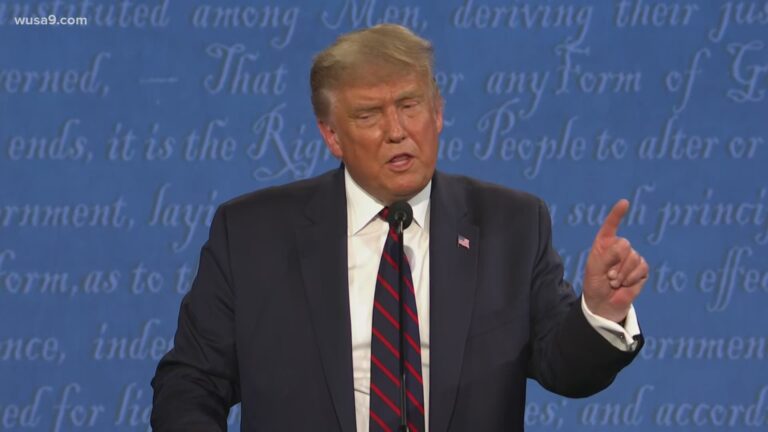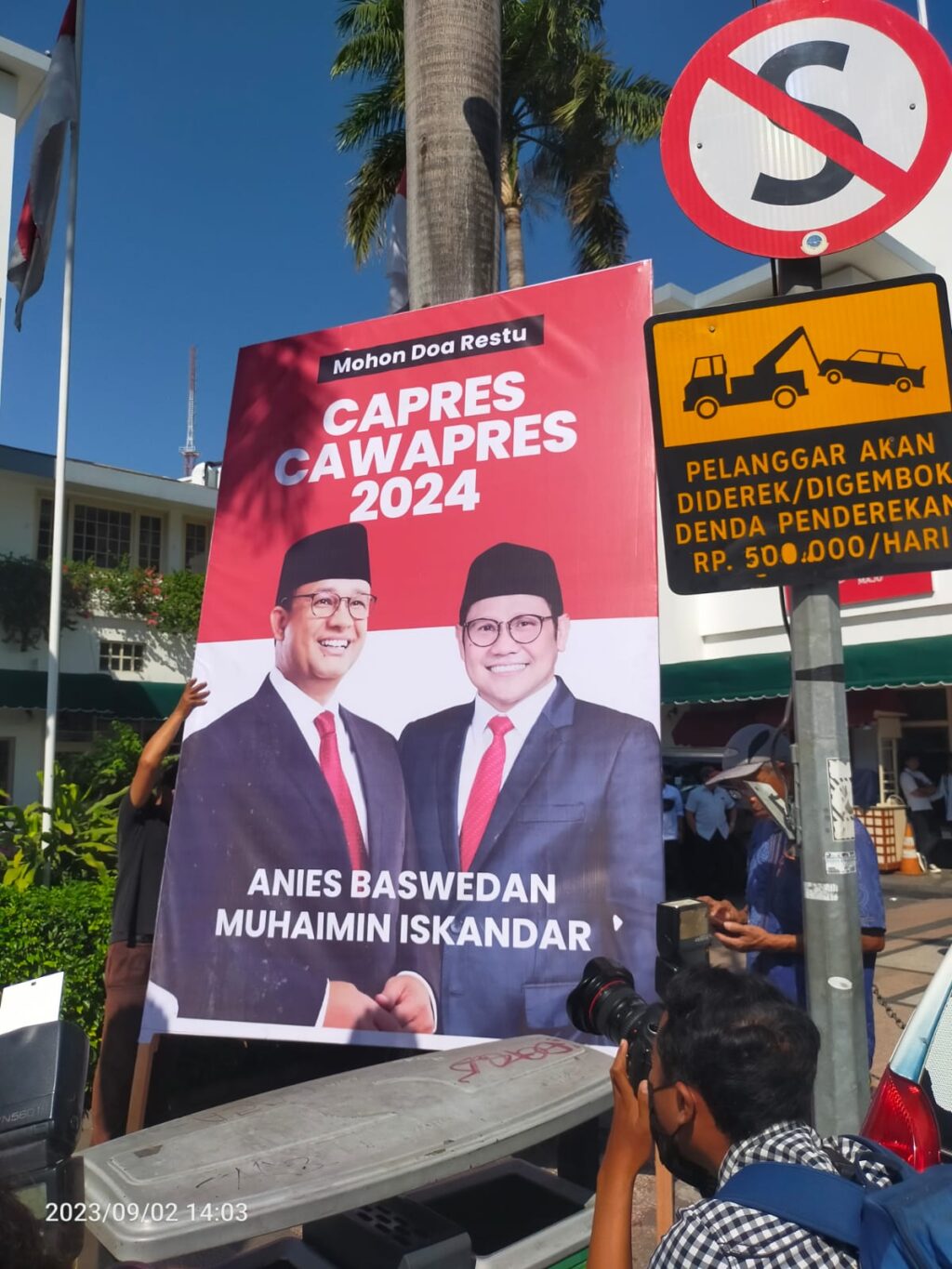
STRATEGIC ASSESSMENT. The Democratic Party has made the decision to join the coalition supporting Defense Minister Prabowo Subianto’s presidential bid, following a recent setback with the previous coalition that backed former Jakarta Governor Anies Baswedan, according to a politician. With the Democratic Party joining, Prabowo now leads the largest coalition of incumbent parties, which includes his Great Indonesia Movement Party (Gerindra), PAN, and the Golkar Party.
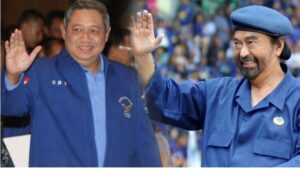
The Prosperous Justice Party (PKS) officially approved Muhaimin Iskandar a.k.a. Cak Imin as a candidate for vice presidential candidate to accompany Anies Baswedan. The likelihood of winning the presidential election in 2024 is growing.
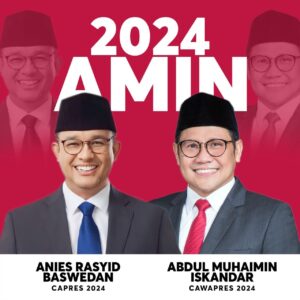
PKS President Ahmad Saikhu said that he supported the Anies-Muhaimin duo, while also dismissing claims that PKS had doubts when Muhaimin was chosen as Anies’ partner. Based on this decision, Ahmad believes the PKS will win the 2024 elections. Ahmad immediately directed that all PKS ranks work together to ensure Anies-Muhaimin’s victory.
The Nahdlatul Ulama (NU) establishment has reaffirmed its support for President Jokowi ahead of the 2024 presidential election, saying that the Islamic organization would “never be too far away” from the nationalist leader. NU Chair Yahya Cholil Staquf expressed the group’s support for the incumbent president as he opened NU’s Big Congress and Scholar National Conference (Musyawarah Nasional Alim Ulama dan Konferensi Besar) in Jakarta.

The event was attended by the President and some of his ministers, including Defense Minister Prabowo Subianto and State-owned Enterprises (SOEs) Minister Erick Thohir. In his speech, Yahya also thanked Jokowi for his contribution to the establishment of a new nine-story building in Nahdatul Ulama University (UNU) in Yogyakarta and for facilitating a cooperation with the United Arab Emirates (UAE) government to create a new study program at the university.
Anies Baswedan, the presidential candidate from the Coalition of Change for Unity, spoke at the 6th Indonesia Energy Transition Dialogue 2023. Environmental issues, according to Anies, are a big and important topic. However, it is still barely discussed. As a result, this must be a widespread concern.
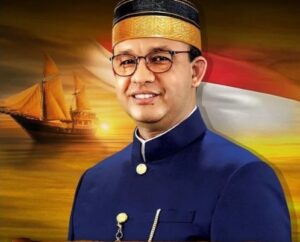
Anies said there are five pillars to humanizing energy: holistic and sustainable governance, stakeholder collaboration, funding innovation, just energy transition, and intervention on the demand and supply sides.
Presidential candidate Ganjar Pranowo now has four potential candidates to choose from as his running mate for the February election after the establishment of three competing coalitions was completed, his campaign team announced.
The four vice-presidential candidates in consideration are State-Owned Enterprise Minister Erick Thohir, Chief Security Minister Mohammad Mahfud MD, Tourism Minister Sandiaga Uno, and former Indonesian Military Chief Andika Perkasa.

Political parties may have to rush their decisions on presidential and vice-presidential nominations after policymakers and the election organizing body agreed to move up the registration deadline to late October from late November. The General Elections Commission (KPU) secured endorsements from House Commission II overseeing home affairs and the Home Ministry to reschedule the registration window for presidential and vice-presidential candidates from Oct. 19 through Nov. 25 to Oct 19–25.

Google and YouTube are committed to supporting the peaceful and dignified implementation of the 2024 Simultaneous General Elections. Google Indonesia Director of Government Relations and Public Policy Putri Alam at an event to promote peaceful election conveyed Google’s commitment to connecting the public to trusted information and educating the public to avoid misinformation.

Putri said, to realize the peaceful elections, Google and YouTube will take some steps, and the first thing is to protect users from harmful and illegal content. When users are looking for information on elections in Google Seach, Google will display and prioritize information from trusted sources like the General Election Commission (KPU) and Election Supervisory Agency (Bawaslu).
A proposal to have only two pairs of candidates contesting the Feb. 14 election, which would be intended to save the country from having to hold a costly run-off election, had appeared dead after the pro-government parties, particularly the Indonesian Democratic Party of Struggle (PDI-P) and the Gerindra Party, failed to agree on which party would get the presidential slot on the ticket.
The idea has now been revived after the General Elections Commission (KPU) officially moved the deadline for presidential election registration from Nov. 25 to Oct. 25, forcing Prabowo’s Indonesia Onward Coalition (KIM) and Ganjar’s PDI-P-led electoral alliance to scramble to find running mates for their presumptive presidential nominees.
With the clock ticking faster, party elites are now rehashing the proposal to pair the two election frontrunners, leaving the Anies Baswedan-Muhaimin Iskandar candidate pair from the Coalition of Change for Unity (KPP), as the only other election contender.
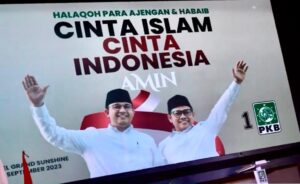
The General Elections Commission (KPU) has given an assurance that it would still have enough time to prepare for the 2024 regional elections should they be fast-tracked by two months. The idea of bringing forward the elections by two months first came from the government but has yet to win unanimous support from lawmakers.
The regional elections, set to be held on Nov. 24 of next year, will be the first time Indonesians vote for their regional heads simultaneously across the country’s dozens of provinces and hundreds of regencies and cities.
The Democratic Party held a national leadership meeting in Jakarta to discuss the direction of support for the 2024 presidential candidate. The national meeting was attended by the leaders of the parties that back Gerindra Party Chair Prabowo Subianto.
On that occasion, Democratic Party Chair Agus Harimurti Yudhoyono a.k.a. AHY presented the results of the national meeting, emphasizing that the Democrats officially supported Prabowo as the presidential candidate.

President Jokowi confirmed that his youngest son, Kaesang Pangarep, has officially become a member of the Indonesian Solidarity Party (PSI). During a visit to the construction site of the future national capital, Nusantara, in East Kalimantan, Jokowi acknowledged that he could not dissuade his other son from joining a rival political party.
He added that Kaesang, who now has his own family, possesses the autonomy to make his own decisions.
After joining the party only a few days ago, Kaesang Pangarep, the youngest son of President Joko “Jokowi” Widodo, is now officially the new chairman of the Indonesia Solidarity Party (PSI).
During the party’s national meeting (Kopdarnas) in Central Jakarta, the PSI named Kaesang, who at 28 is still a novice in Indonesian politics, as the party’s new chair. In a symbolic handover of the party’s leadership, former chair Giring Ganesha presented a bouquet of roses, the party’s symbol, to Kaesang, cementing his place as party chair until 2028.
The relationship between President Joko “Jokowi” Widodo and the Indonesian Democratic Party of Struggle (PDI-P), of which the President is a member, has gone from bad to worse in the leadup to the 2024 presidential election, as the highly popular leader seeks to carve out a political path for his family when he is no longer in the State Palace.
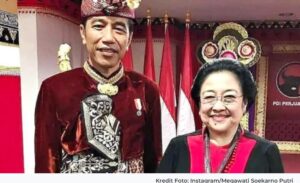
In a critical blow to the nationalist party, Jokowi gave his blessing to his youngest son, Kaesang Pangarep, to join the Indonesian Solidarity Party (PSI), a small political party with which the PDI-P has been at odds since the 2019 election. The PSI, a politically liberal but economically conservative party, has gained traction among young and urban voters on social media, posing a real threat to the grand old nationalist party.





